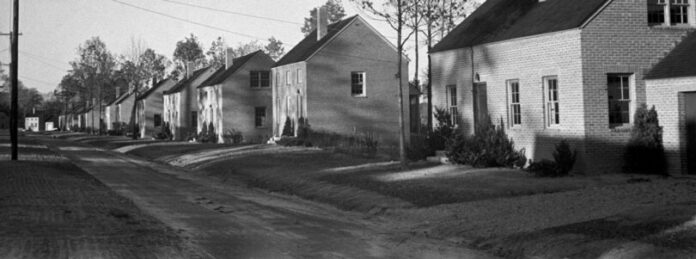
By Stacy M. Brown, NNPA Newswire Senior National Correspondent
The median net worth for Black households is an embarrassingly low $24,000 compared to $188,000 for white families.
And that’s one reason only 45.3% of Black Americans owned their homes in 2022, compared to 74.6% of white people, according to the National Association of Real Estate Brokers – or NAREB.
The organization, which counts as America’s oldest trade association for Black real estate professionals, demands that mortgage lenders utilize Special Purpose Credit Programs (SPCPs) to increase mortgage originations from Black buyers.
The group believes this would help close the homeownership gap between races.
“It’s disappointing that more mortgage lenders are not using these programs to increase homeownership, especially for those living in under-resourced communities,” NAREB President Lydia Pope said.
“America has a low homeownership rate among Black families because of the overt racism in government and private sector practices and policies that limited the building of intergenerational wealth. SPCPs provide opportunities to balance the scale and put more Blacks on a path towards building wealth through homeownership.”
SPCPs are credit assistance programs for economically or socially disadvantaged consumers and commercial enterprises.
The programs, which have been available for nearly 50 years but are rarely used, allow banks and creditors to consider prohibited-basis information in credit transactions to meet special social needs or to help a buyer of lesser means.
In 2021, the U.S. Housing and Urban Development released guidance that SPCPs can legally be developed by non-profit and for-profit financial institutions to help resolve barriers faced by poorer groups, such as Blacks, Hispanics, and women, when they seek to purchase a home.
Examples of such programs include where buyers can have a higher loan-to-value ratio than usual or a lower down payment.
NAREB noted that Rocket Mortgage recently announced that it expanded its special-purpose credit program to offer a $3,000 credit for first-time homebuyers to use toward their downpayment in select cities.
Previously, Rocket Mortgage announced its Purchase Plus program, which offered first-time buyers up to $7,500 in credits to use toward their mortgage costs.
Additionally, the company said it would offer Freddie Mac’s BorrowSmart Access program for buyers purchasing homes in Atlanta, Chicago, Detroit, El Paso, Houston, McAllen, Memphis, Miami, Philadelphia, and St. Louis.
Pope called the programs “vital,” mainly because a divided Congress is unlikely to pass significant legislation addressing the homeownership gap in America.
“This is an opportunity to use public policy for good, to expand opportunities for Black families to enjoy the American Dream of homeownership,” she said.
“Homeownership is the major driver of wealth for Black families. By increasing homeownership, it will strengthen communities and expand family economic security.”
Ironically, Pope noted that before World War II, the government rolled out a series of initiatives for white families to purchase homes and build wealth.
She said that action led to a housing boom, creating modern suburbs surrounding major cities nationwide.
Pope also said that the wealth made from home equity has been passed down from generation to generation, making it possible for white families to improve their quality of life and keep living in their homes.
However, African Americans aren’t allowed to participate in those programs, and the private sector and government engaged in redlining to relegate Black households to segregated neighborhoods.’
Homeownership for the Black community has declined nearly 20% since 2008, Pope determined.
Despite the enactment of the 1968 Fair Housing Act, which was designed to offer legal protections from housing discrimination, the homeownership gap continues to expand, disenfranchising the most marginalized, she summarized.
For instance, in 1960, 38% of Black Americans owned homes while white homeownership was at 65%, a 27-point gap.
In recent years, the United States has experienced the largest homeownership spread since 1890, with 44.6% of Black Americans owning a home compared to 74.2% of whites, a 29.6-point gap.
“The cycle can only be broken by improving the major driver of Black wealth – intergenerational homeownership that yields prosperity and family economic security,” Pope said.
“America’s public and private sectors claim to be committing to a more equitable society, one with opportunities for wealth and success regardless of race or ethnicity. But to make racial equity a reality, government, corporate and civic leaders must address the wealth and home ownership gaps that diminish the aspirations, hopes, and dreams of Black families and individuals.”

